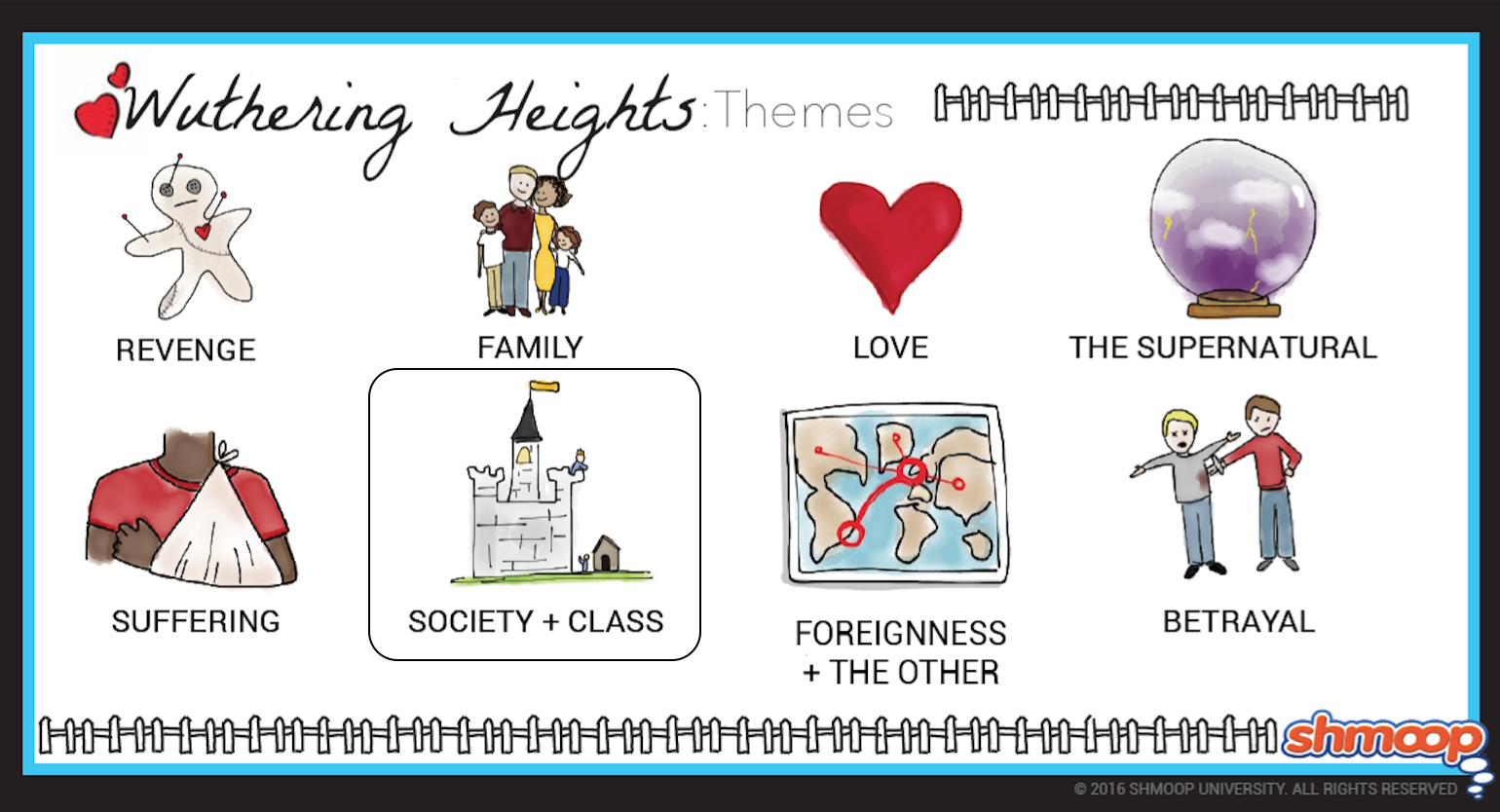 (Click the themes infographic to download.)
(Click the themes infographic to download.)
Even though Wuthering Heights' two families live out in the middle of nowhere, they still abide by the totally claustrophobic constraints of class. The Lintons and the Earnshaws are both members of the middle class—between the working class and the elite. But marriage to Edgar Linton is still the means through which Catherine becomes the "greatest woman of the neighbourhood" (9.59) while, as she tells Nelly,
"Did it never strike you that if Heathcliff and I married, we should be beggars? whereas if I marry Linton, I can aid Heathcliff to rise and place him out of my brother's power." (9.99)
Being an orphan with no family ties and no land, Heathcliff is the lowest on the totem pole. The fact that Hindley denies Heathcliff an education implies that he's trying to force him to become a servant. So it makes sense that Heathcliff's revenge is tied directly to the novel's class issues.
Questions About Society and Class
- How do property, education, and family name all contribute to social class?
- How does Heathcliff's presence throw a wrench in the class structure at play in the two houses?
- What role do servants play in the novel?
- What becomes of Hareton's class status at the end of the novel?
Chew on This
Heathcliff threatens Hindley's status as heir to the Earnshaw fortune, but it is ultimately Hindley's own behavior that loses him his family home.